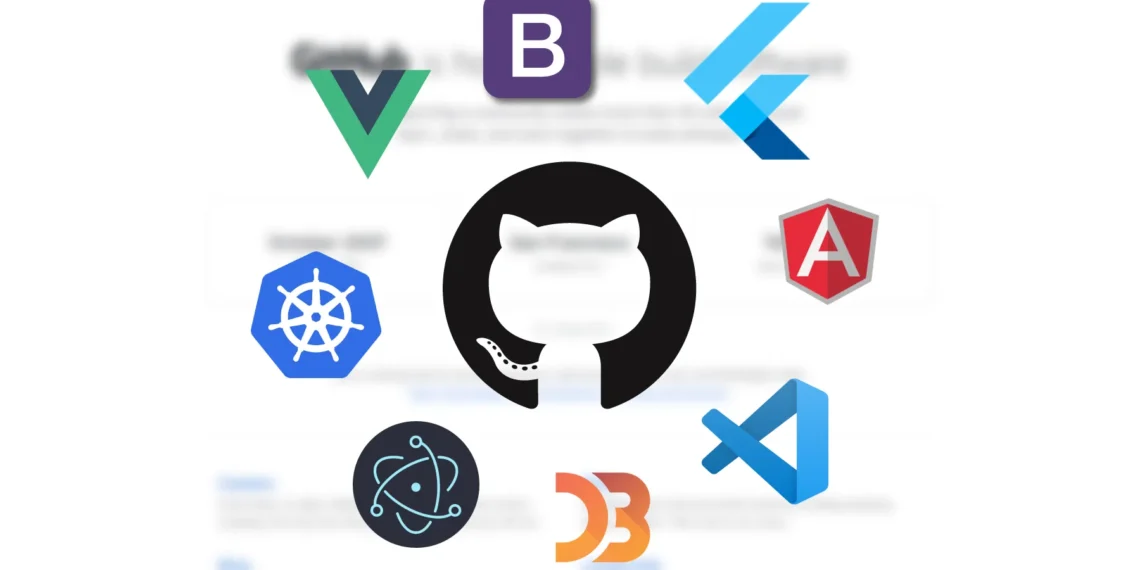Contributing to open-source projects is one of the best ways for developers to improve their skills, engage with a global community, and make a meaningful impact in the tech ecosystem. As we enter 2024, a vast array of exciting projects awaits contributors, from well-established tools to promising new platforms. This guide covers over 70 open-source projects across various tech domains like web development, machine learning, cybersecurity, and more. If you’re passionate about coding, open-source collaboration, or simply curious to get involved, these projects offer an excellent starting point for your journey.
Each project on this list has been carefully chosen for its community support, impact, and potential for contributions. Let’s explore each of these projects in depth, focusing on what makes them unique, the skills you’ll need, and why contributing to them can be a valuable experience.

1. TensorFlow
TensorFlow is one of the most widely used libraries for machine learning and artificial intelligence, making it a fantastic choice for developers interested in data science. Originally developed by Google, TensorFlow has grown into a robust, versatile platform supporting everything from research in artificial intelligence to practical applications across industries. Contributing to TensorFlow offers immense learning opportunities, as contributors can dive into code optimizations, create tutorials, improve documentation, or even develop new algorithms for the library. Because TensorFlow’s applications span a variety of fields—like healthcare, finance, and natural language processing—it appeals to developers from various disciplines. The project typically requires proficiency in Python and familiarity with machine learning and deep learning principles, which makes it an excellent choice for those looking to deepen their knowledge in these areas while giving back to the community.
2. Kubernetes
Kubernetes, a container orchestration platform, is another powerful open-source project originally created by Google. It has become the de facto standard for managing large-scale applications, especially in cloud environments. Kubernetes is vital for companies and developers aiming to scale their applications efficiently, which has led to high demand for skills in containerization and distributed systems. By contributing to Kubernetes, developers can learn more about DevOps, explore best practices in container management, and improve their knowledge of cloud infrastructure. Many areas of Kubernetes, from documentation to feature enhancement, welcome contributions, and with the growing importance of cloud-native applications, working on Kubernetes offers excellent career development opportunities. Experience with Golang, as well as a background in containerization tools like Docker, is helpful when diving into Kubernetes.
3. Vue.js
For developers with an interest in front-end development, Vue.js presents an appealing open-source project to get involved with. Vue.js is a progressive JavaScript framework that has gained popularity for its simplicity, flexibility, and powerful tools for creating user interfaces and single-page applications. As a contributor to Vue.js, you can work on building out features, optimizing performance, or even writing documentation and tutorials that help other developers understand the framework better. Contributions to Vue.js can significantly deepen a developer’s understanding of JavaScript frameworks, CSS, and responsive design, as well as provide exposure to a large, active community. With its modular architecture and an approachable learning curve, Vue.js is ideal for developers looking to make an impact in the world of front-end development.
4. Home Assistant
Home Assistant is an open-source platform dedicated to home automation. It’s designed to help users control smart home devices through a single, customizable interface, making it one of the most exciting projects for developers interested in the Internet of Things (IoT). Contributing to Home Assistant can involve working on integrations with various smart home products, enhancing the user interface, or improving system stability. Since the platform uses Python extensively, contributors should have a solid grasp of Python programming and a keen interest in smart home technology. Home Assistant provides a unique opportunity to engage in the fast-evolving field of IoT while contributing to a platform that enhances everyday life.
5. FreeCodeCamp
FreeCodeCamp is a non-profit organization dedicated to providing free coding education to people worldwide. With millions of learners relying on its resources, FreeCodeCamp offers contributors a chance to create a direct, positive impact on others’ lives by improving the platform’s curriculum, adding new challenges, or enhancing the site’s functionality.
Contributions to FreeCodeCamp can range from refining instructional materials to helping with the technical backend that supports the learning platform. This project is ideal for those who want to work on educational content, instructional design, or even just get involved in a supportive community that values learning and knowledge sharing. Knowledge of JavaScript and basic web development skills are particularly useful for contributions.
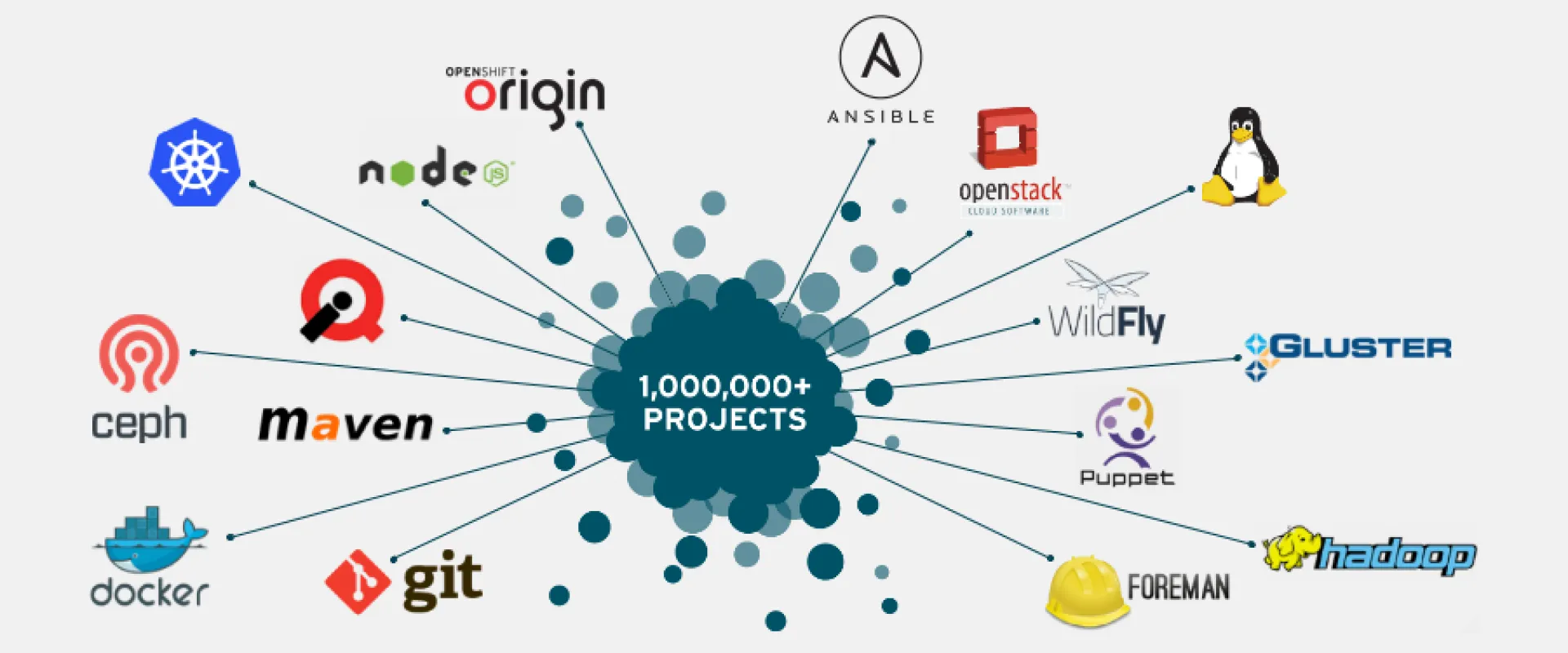
6. React
React, a JavaScript library for building user interfaces is one of the most widely used tools in front-end development today. Originally developed by Facebook, React has powered the development of countless websites and applications with its component-based architecture, making it easier for developers to create interactive UIs. Contributing to React allows developers to delve into advanced front-end development concepts, improve their understanding of user experience design, and collaborate with seasoned developers in a vibrant community. React’s documentation and ecosystem are also continuously evolving, offering many ways to contribute beyond code alone—like adding tutorials, fixing bugs, or improving the overall developer experience. For this project, contributors should be well-versed in JavaScript, HTML, and CSS, with a strong grasp of front-end development principles.
7. Apache Kafka
Apache Kafka is a distributed streaming platform that enables handling real-time data feeds. It is extensively used by organizations that need to process massive amounts of data quickly and reliably, especially for tasks like log aggregation, real-time analytics, and data integration. Kafka contributors often engage in tasks related to performance optimization, fault tolerance, and data processing algorithms. Working on Kafka offers a chance to explore the intricacies of distributed systems and data engineering. Since Kafka is primarily coded in Java, it’s well-suited for Java developers or those looking to understand the infrastructure behind data-heavy applications. Contributing to Kafka allows developers to gain expertise in real-time data processing, which is a highly valuable skill in today’s data-centric world.
8. Node.js
Node.js, a JavaScript runtime environment that allows server-side scripting, is a popular choice for back-end development. Node.js has a strong ecosystem of libraries and tools that simplify web application development, making it a fantastic option for those looking to expand their backend skills. Contributing to Node.js can involve anything from improving core performance and adding features to working on documentation and addressing security issues. This project is ideal for developers with a solid foundation in JavaScript who are interested in building scalable, high-performance web applications. Since Node.js is used in production by companies around the world, contributing to it can provide a strong career boost and offer a sense of involvement in the backbone of many modern applications.
9. Electron
Electron is an open-source framework that enables developers to create cross-platform desktop applications using web technologies like JavaScript, HTML, and CSS. It powers popular applications like Slack, Atom, and Visual Studio Code, making it a crucial tool for developers aiming to bring web-based tools to desktop environments. Contributions to Electron can include optimizing the framework, adding new features, or improving compatibility across operating systems. Developers interested in building desktop applications without learning an entirely new language can benefit greatly from contributing to Electron. Familiarity with JavaScript, as well as an understanding of cross-platform compatibility issues, can be helpful for contributors to this project.
10. OpenCV
OpenCV, or Open Source Computer Vision Library, is a popular tool for computer vision and image processing, widely used in academia and industry. OpenCV enables developers to work on applications ranging from facial recognition to robotics and autonomous vehicles. By contributing to OpenCV, developers can explore AI and machine learning from a practical angle, enhancing their skills in algorithms that process visual data. OpenCV is predominantly written in C++ but also supports Python, so knowledge of either language is beneficial. This project is ideal for those with a passion for image processing and a desire to work on advanced algorithms that have tangible, real-world applications.

11. GIMP
The GNU Image Manipulation Program (GIMP) is a powerful, open-source alternative to commercial image editing software like Photoshop. GIMP is widely used by graphic designers, photographers, and artists, making it an ideal platform for contributors interested in digital art tools and multimedia editing. The project has numerous opportunities for contributions, such as improving its core features, adding new plugins, or refining the user interface. Developers with skills in C, Python, and GTK (a toolkit for creating graphical user interfaces) will find GIMP to be a rewarding project where their work directly enhances user creativity. Contributing to GIMP can be a great way for developers to gain experience with image processing and user interface design.
12. OpenStreetMap
OpenStreetMap (OSM) is a collaborative project that aims to create a free and editable map of the world. Unlike other map services, OSM relies on contributions from a global community of mappers who document everything from roads and trails to restaurants and historical landmarks. For developers, contributing to OSM might involve improving mapping tools, enhancing the back-end infrastructure, or creating plugins that make it easier for users to add and edit data. This project is particularly well-suited for those with interests in GIS (Geographic Information Systems), data visualization, and Python or JavaScript. OpenStreetMap’s mission to democratize access to geographical data makes it a worthwhile choice for contributors passionate about open data and community-driven projects.
13. Ansible
Ansible is an open-source automation tool widely used for IT configuration management, deployment, and orchestration. Built by Red Hat, Ansible simplifies the complex process of managing large-scale IT systems, making it highly valuable in DevOps and systems administration. Contributions to Ansible could involve developing modules, refining existing features, or enhancing the documentation to make the tool more accessible to users. Knowledge of Python, YAML, and basic system administration is beneficial for contributors, as these are commonly used in the project. Ansible provides a hands-on way to learn infrastructure automation and cloud provisioning, skills that are in high demand in the tech industry.
14. Godot Engine
Godot is a free, open-source game engine that has become a popular alternative to proprietary engines like Unity and Unreal Engine. Godot allows developers to create 2D and 3D games, and it’s designed to be user-friendly and highly customizable. Contributing to Godot can be an exciting opportunity for those interested in game development, as it offers various ways to participate, including adding features, fixing bugs, creating assets, and improving documentation. Familiarity with C++, GDScript (Godot’s native scripting language), or Python is helpful for contributors. By working on Godot, developers can gain experience with game design, graphics rendering, and physics simulation, all while supporting an open-source tool that empowers game creators.
15. Rust
Rust is a systems programming language focused on performance and memory safety, often described as a safer alternative to C++. Originally developed by Mozilla, Rust has gained traction for its innovative approach to handling memory management. Contributors to Rust work on tasks ranging from compiler improvements and language features to writing documentation and developing libraries. Since Rust is increasingly used in systems programming, web assembly, and game development, contributing to this project can be a solid career move. Familiarity with low-level programming concepts and compiler design is useful, making Rust an ideal project for advanced developers who want to deepen their expertise in language development.
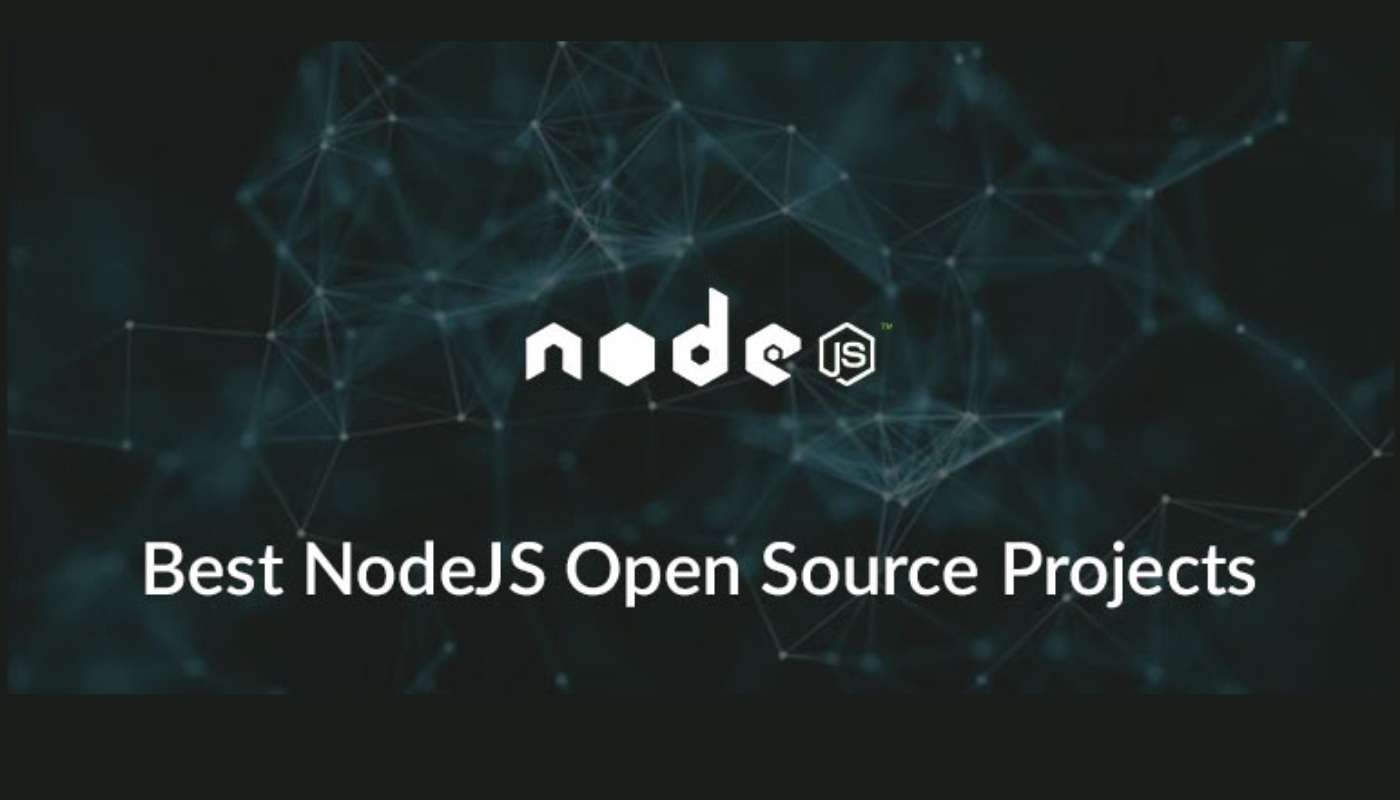
16. Mattermost
Mattermost is an open-source messaging and collaboration platform designed for enterprises, offering a more secure and customizable alternative to tools like Slack. It’s especially popular among teams that prioritize data privacy and want full control over their communication stack. Contributors to Mattermost can work on enhancing the platform’s functionality, improving user interface design, or writing plugins to extend its capabilities. Developers skilled in React, JavaScript, and Go will find Mattermost to be an engaging project that intersects web development and team collaboration. Contributing to Mattermost is a great way to gain experience with real-time applications, a skill that’s highly relevant for social and business applications.
17. Jupyter Notebooks
Jupyter is a web-based interactive computing platform that has become a staple in data science and scientific computing. Jupyter Notebooks allow users to write and execute code in a modular format, making it ideal for exploratory data analysis and documentation. Contributors to Jupyter can work on everything from core features and new plugins to interface improvements and performance optimization. With Python as the primary language, Jupyter is well-suited for developers interested in data science, machine learning, and scientific computing. Contributions here offer the chance to work with a widely-used tool in the academic and data science communities, providing valuable exposure to practical applications of data and code.
18. Blender
Blender is an open-source 3D creation suite used for everything from animated films and visual effects to video games and 3D printed models. Blender’s extensive feature set includes 3D modeling, sculpting, animation, simulation, rendering, and compositing. Contributions to Blender can range from core development and performance improvements to plugin creation and UI/UX enhancements. Developers with a background in C++, Python, and graphics programming will find Blender an exciting project with a vibrant community of artists and developers. Since Blender is used professionally across industries, contributing to it offers the chance to work on complex, real-world applications in the 3D space.
19. Mozilla Firefox
Mozilla Firefox is one of the most well-known open-source web browsers, emphasizing user privacy, speed, and customization. Contributing to Firefox provides developers with a chance to work on a high-impact project used by millions worldwide. Opportunities for contribution include bug fixing, feature enhancements, and performance optimizations, particularly for those familiar with C++, JavaScript, and Rust (used in newer parts of Firefox’s engine). Working on Firefox allows developers to deepen their understanding of web technology, browser engines, and security, while also supporting an open web ecosystem that prioritizes user choice and transparency.
20. ElasticSearch
ElasticSearch is a powerful open-source search engine built on top of Apache Lucene. It’s widely used for analytics, search functionality, and logging across a variety of industries. Developers can contribute by improving ElasticSearch’s indexing, search algorithms, or handling of large data volumes. Contributions to ElasticSearch are ideal for those interested in data engineering and search technology, especially if they have knowledge of Java and experience with data structures. ElasticSearch’s performance and scalability make it essential for applications with large datasets, so working on this project offers contributors valuable experience in handling high-performance data processing systems.
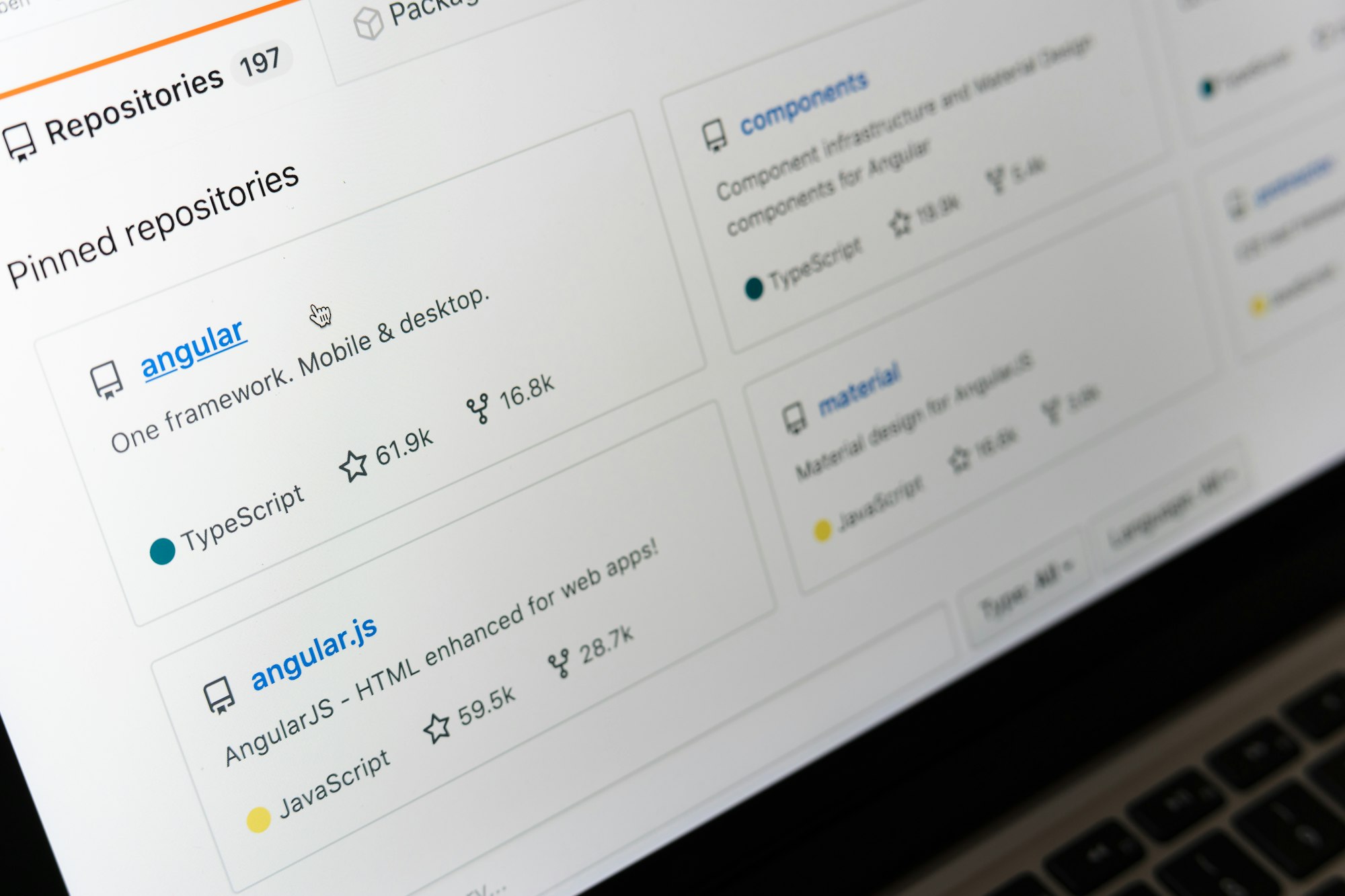
21. Django
Django is a high-level Python web framework that encourages rapid development and clean design, widely used in the development of web applications. Django’s emphasis on reusable code and simplicity makes it ideal for developers who value efficiency. Contributors can work on a wide range of tasks, from enhancing the ORM (Object-Relational Mapping) to improving the admin interface and writing documentation. Django offers a welcoming community and a wide variety of contribution opportunities, especially for Python developers who want to specialize in web development. Contributing to Django not only improves one’s skills in Python but also provides insight into web application architecture and best practices.
22. Apache Spark
Apache Spark is an open-source analytics engine for big data processing, with built-in modules for SQL, machine learning, and graph processing. Spark is widely adopted in data-heavy industries like finance, healthcare, and tech for its high speed and flexibility. Contributions to Spark can involve improving processing algorithms, optimizing data handling, or adding new features. Knowledge of Scala or Python and experience with distributed systems are valuable for contributors to Spark. Working on Spark offers a unique opportunity to contribute to a tool that’s instrumental in big data processing, enabling contributors to build skills in handling large-scale data workflows.
23. Next.js
Next.js is a powerful React-based framework developed by Vercel that enables server-side rendering and static site generation. It’s especially popular for creating performant and scalable web applications. Contributors to Next.js can work on feature development, improve performance optimizations, or help with tooling. The project is particularly appealing to developers familiar with JavaScript, React, and modern front-end practices. Contributing to Next.js provides valuable experience in full-stack JavaScript, and since the framework is heavily used in production applications, it offers practical skills for real-world web development.
24. Terraform
Terraform, created by HashiCorp, is an infrastructure-as-code tool that enables users to define and provision infrastructure in a consistent manner. As cloud infrastructure becomes increasingly important, Terraform has grown in popularity for automating cloud and on-premises resources. Contributions to Terraform can involve creating new providers, improving existing integrations, and refining core functionality. Knowledge of Go and cloud computing is beneficial for contributors. By working on Terraform, developers can gain a deep understanding of cloud services, infrastructure management, and the principles of declarative configuration.
25. Apache Airflow
Apache Airflow is an open-source platform to programmatically author, schedule, and monitor workflows. It’s particularly popular in data engineering and is used to manage complex data pipelines. Contributors to Airflow can work on enhancing its scheduler, creating plugins, or improving the overall user experience. Proficiency in Python and experience with task scheduling or data processing workflows make it easier to contribute effectively. Working on Apache Airflow provides exposure to the world of data engineering and orchestration, which is essential in data-driven applications and organizations.
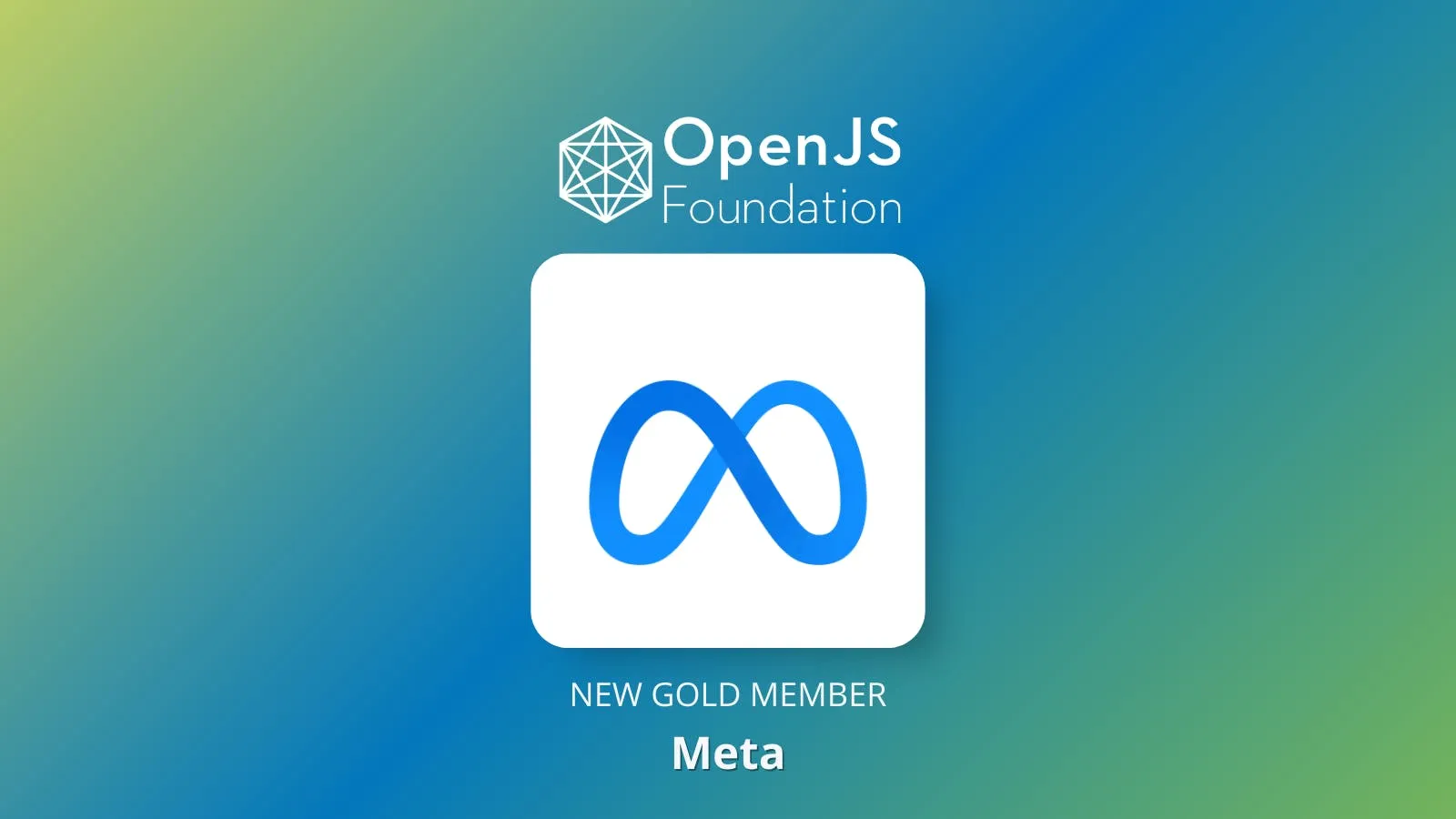
26. Apache Flink
Apache Flink is an open-source platform for scalable batch and stream processing. It’s particularly well-suited for large-scale, data-driven applications that require real-time data processing. Flink contributors often work on improving processing speed, adding new streaming functionalities, and enhancing scalability. The project is ideal for developers interested in real-time data analytics and distributed systems, with Java or Scala proficiency being highly useful. Working on Flink offers a chance to contribute to the backbone of real-time data solutions, which are essential in sectors like finance, IoT, and telecommunications.
27. Grafana
Grafana is a popular open-source platform for monitoring and visualizing time-series data. It supports a wide range of data sources, from Prometheus to ElasticSearch, making it versatile for monitoring applications and infrastructure. Contributors to Grafana can help develop new data source integrations, improve visualization capabilities, or work on enhancing user interfaces. The project is well-suited for developers with experience in JavaScript, TypeScript, or Go. Contributing to Grafana is an excellent way to gain experience with data visualization, real-time monitoring, and DevOps practices.
28. Prometheus
Prometheus is a powerful open-source monitoring and alerting toolkit designed for reliability in cloud-native environments. It is often paired with Grafana for visualizations and is heavily used in DevOps and cloud infrastructure management. Contributors to Prometheus can work on expanding alerting capabilities, optimizing data collection, or integrating new exporters for metrics collection. The project is ideal for those with experience in Go and an interest in observability and monitoring. Contributing to Prometheus offers hands-on exposure to monitoring techniques crucial in large-scale systems and cloud environments.
29. Zulip
Zulip is an open-source chat application designed for efficient team communication, similar to Slack but with a unique threading model. Contributions to Zulip can involve improving features, adding integrations, or working on user interface improvements. Zulip is a fantastic project for developers familiar with Python and JavaScript, as these are the primary languages used. By contributing to Zulip, developers can gain experience in real-time messaging, collaboration tools, and user experience design, making it a strong choice for those interested in building communication platforms.
30. OpenAI Gym
OpenAI Gym is a toolkit for developing and comparing reinforcement learning algorithms, part of OpenAI’s mission to advance artificial general intelligence. OpenAI Gym provides environments for testing and training machine learning models, making it an exciting project for developers interested in artificial intelligence and machine learning. Contributions can involve creating new environments, improving documentation, or working on optimization. Proficiency in Python and knowledge of reinforcement learning are helpful for contributors. Working on OpenAI Gym is ideal for developers who want to deepen their understanding of machine learning and contribute to the future of AI research.

31. Rocket.Chat
Rocket. Chat is an open-source communication platform, often used as an alternative to proprietary options like Slack and Microsoft Teams. It offers secure team messaging with an emphasis on privacy. Contributors can work on adding new features, improving integrations with other tools, or refining the user interface. Rocket.Chat is suitable for developers with skills in JavaScript, TypeScript, and Node.js. By contributing to Rocket.Chat, developers can gain experience in real-time communication software, which is increasingly essential in remote work environments.
32. TensorFlow Lite
TensorFlow Lite is a lightweight version of TensorFlow, optimized for mobile and edge devices. It enables developers to deploy machine learning models on devices like smartphones, IoT devices, and embedded systems. Contributors can work on optimization for performance, support for new hardware, or usability improvements. Knowledge of Python and an understanding of machine learning and mobile development are helpful for contributors. TensorFlow Lite provides a unique opportunity to engage in the intersection of AI and mobile technology, contributing to the expansion of AI capabilities on edge devices.
33. Godot Asset Library
An extension of the Godot Engine, the Godot Asset Library is a repository where users can share assets, plugins, and tools for game development. Contributors to the asset library can create assets, improve asset categorization, or develop tools for easier asset sharing. This project is ideal for developers with skills in game design, C#, or GDScript. Working on the Godot Asset Library offers hands-on experience in game development and community building, as contributors help support a growing library of resources for game developers.
34. OpenLibrary
OpenLibrary is a project by the Internet Archive that aims to build a universal, digital library accessible to everyone. It includes millions of book records and provides access to scanned books. Contributors can work on catalog improvements, user interface design, or backend optimization. Developers with experience in Python, JavaScript, and data management will find this project rewarding. OpenLibrary is ideal for those passionate about information access and digital libraries, contributing to a mission of making knowledge available to all.
35. PyTorch
PyTorch is a machine learning library focused on deep learning and is particularly popular in the research community. It’s known for its dynamic computation graph and ease of use, which makes it a favorite for building and testing neural networks. Contributors to PyTorch can work on improving performance, adding new machine learning functions, or writing documentation. Python and C++ are the primary languages used, and a background in machine learning or deep learning is beneficial. Working on PyTorch allows contributors to engage with cutting-edge AI technology and gain experience with a tool widely used in both academia and industry.
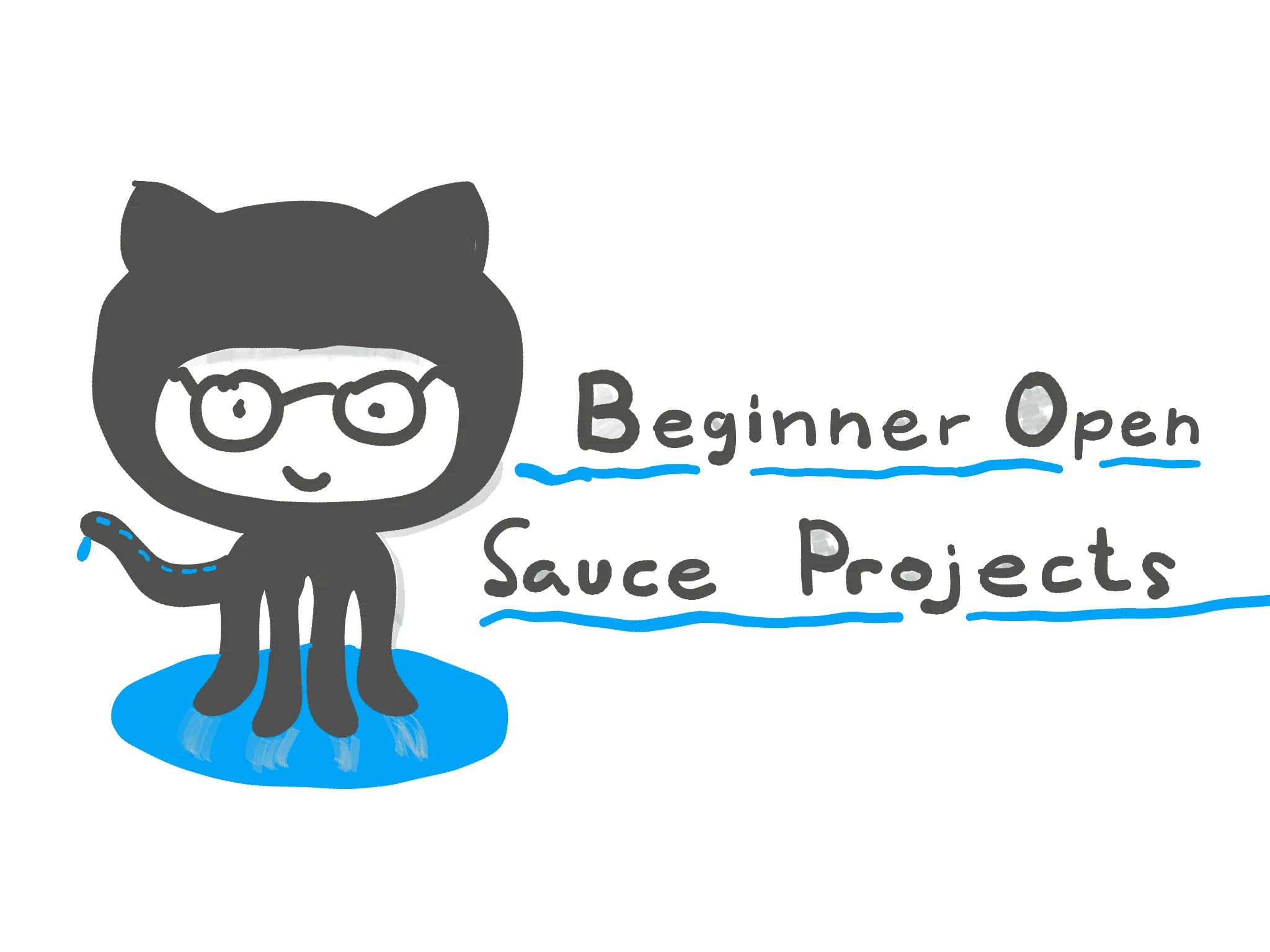
36. Discourse
Discourse is an open-source forum and discussion platform designed for community management. It is highly customizable and used by various online communities for discussions, Q&A, and content sharing. Contributions to Discourse can include feature development, plugin creation, and UI improvements. The project is ideal for developers with experience in Ruby on Rails, JavaScript, and front-end design. Contributing to Discourse offers insights into community building and online interaction, skills that are valuable in web development and digital engagement.
37. Mastodon
Mastodon is a decentralized social network built on open-source principles, offering an alternative to centralized social media platforms like Twitter. It’s part of the “Fediverse,” a collection of federated services that allow decentralized communication. Contributors can work on new features, improve scalability, or enhance the user interface. Developers with experience in Ruby on Rails and JavaScript will find Mastodon to be an exciting project. By contributing to Mastodon, developers can engage with concepts of privacy, decentralization, and community-driven social networking.
38. Hyperledger Fabric
Hyperledger Fabric is a blockchain framework implementation and one of the projects within the Hyperledger initiative hosted by The Linux Foundation. It provides a foundation for developing blockchain applications with modular architecture. Contributors can help optimize transaction processing, improve documentation, or develop new smart contract features. Developers with experience in Go, Java, and distributed systems will find this project engaging. Contributing to Hyperledger Fabric offers hands-on experience with blockchain technology, which is increasingly relevant in finance, supply chain, and decentralized applications.
39. Matter
Matter is an open-source connectivity standard for smart home devices, aiming to create a more unified IoT ecosystem. The Matter protocol is built to ensure compatibility between smart home devices from different brands. Contributors to Matter can work on device integrations, protocol improvements, or user documentation. Experience in embedded systems, IoT, and network protocols can be helpful. Contributing to Matter allows developers to be part of the IoT revolution, working towards greater interoperability and ease of use in smart homes.
40. Inkscape
Inkscape is an open-source vector graphics editor often compared to Adobe Illustrator. It is used for creating vector art, illustrations, and icons, making it popular among designers and illustrators. Contributors can work on new features, improve compatibility, or optimize the tool’s performance. Developers with skills in C++, GTK, and graphics programming will find Inkscape an exciting project. By contributing to Inkscape, developers support a powerful design tool and help make creative software more accessible.

41. Caddy
Caddy is an open-source web server known for its simplicity and automatic HTTPS configuration. It’s an excellent project for those interested in web servers, security, and performance optimization. Contributions can involve improving server performance, developing plugins, or enhancing security features. Familiarity with Go, web server technology, and security protocols is useful for contributors. Caddy is an excellent project for developers looking to deepen their understanding of web infrastructure and security.
42. TensorFlow Federated
TensorFlow Federated is a framework for machine learning on decentralized data, supporting use cases like edge computing and distributed model training. Contributors can work on expanding the framework’s capabilities, adding new ML functions, or optimizing communication protocols. Knowledge of Python and distributed systems can be helpful. TensorFlow Federated is ideal for those interested in the intersection of AI and decentralized computing, offering experience in a cutting-edge area of machine learning.
43. Freeplane
Freeplane is an open-source mind-mapping and knowledge management tool that helps users visualize and organize information. It’s a great project for developers with an interest in productivity software and user experience. Contributors can add new mind-mapping features, improve the interface, or enhance data visualization. Developers with Java experience will find Freeplane an interesting project, especially those looking to support educational and organizational tools.
44. Kubernetes Dashboard
Kubernetes Dashboard is a general-purpose, web-based UI for Kubernetes clusters, allowing users to manage and troubleshoot their containerized applications. Contributors can help improve the UI, add new monitoring features, or refine documentation. Experience with Go, Angular, and Kubernetes itself is beneficial. This project is ideal for those interested in DevOps, cloud infrastructure, and user interfaces for system management.
45. Calibre
Calibre is a free and open-source e-book management software that allows users to organize, read, and share e-books. It supports various formats and devices, making it an invaluable tool for avid readers and collectors. Contributions can include UI improvements, new format support, or performance optimizations. Developers with experience in Python will find Calibre an engaging project that supports digital content access and preservation.

46. DuckDuckGo
DuckDuckGo is a privacy-focused search engine that doesn’t track its users. Known for prioritizing anonymity and secure searches, DuckDuckGo is a great open-source project for those passionate about online privacy. Contributors can work on improving the search algorithms, enhancing user privacy, or developing extensions. Skills in JavaScript, Python, and an understanding of web technologies are useful for contributing to this project. Working on DuckDuckGo offers insight into building ethical technology and creating secure, privacy-first applications.
47. QGIS (Quantum GIS)
QGIS is an open-source Geographic Information System (GIS) used for analyzing and visualizing geospatial data. It’s widely used by scientists, geographers, and urban planners. Contributions to QGIS can include developing plugins, improving GIS tools, and working on the interface. Developers with experience in Python, C++, and data visualization will find QGIS an interesting project. Contributing to QGIS allows developers to work on projects with real-world impact, helping improve tools for environmental research, urban planning, and geographical analysis.
48. Hugo
Hugo is an open-source static site generator written in Go, known for its speed and simplicity. It’s a popular tool for creating websites and blogs without a traditional database. Contributors to Hugo can work on developing themes, optimizing performance, or adding new features. Skills in Go, HTML, CSS, and web development are beneficial for those looking to contribute. Hugo is an ideal project for developers interested in web development, performance optimization, and the growing field of static site generation.
49. OpenCV.js
OpenCV.js is a JavaScript binding for OpenCV, bringing computer vision to the browser. This project is perfect for developers interested in web-based computer vision applications. Contributions can include improving the JavaScript API, adding support for new functions, and optimizing for performance. JavaScript, C++, and a background in computer vision are helpful skills for this project. Contributing to OpenCV.js enables developers to work at the intersection of computer vision and web development, making cutting-edge technology accessible on the web.
50. OpenRA
OpenRA is an open-source game engine re-creating classic real-time strategy games like Command & Conquer. It’s popular among game enthusiasts who want to relive classic gaming experiences. Contributors can help improve the engine, develop new game modes, or work on graphics and audio improvements. Knowledge of C#, game design, and 2D graphics is helpful. OpenRA is a great project for those interested in game development, especially in creating experiences inspired by retro games.

51. Etherpad
Etherpad is a collaborative text editor that allows real-time editing, commonly used in education and team projects. It’s a popular alternative to proprietary tools for collaborative writing. Contributors to Etherpad can work on new features, plugin development, and UX/UI improvements. Skills in JavaScript, Node.js, and web development are helpful for contributors. Etherpad provides a practical opportunity to work on real-time collaboration software, contributing to open solutions for productivity and education.
52. Nextcloud
Nextcloud is a self-hosted cloud storage platform that provides users with privacy-focused file storage, sharing, and collaboration. It’s widely adopted by privacy-conscious users and organizations. Contributors can work on integrations, feature enhancements, or user interface improvements. Skills in PHP, JavaScript, and file management systems are useful for contributors. Contributing to Nextcloud offers developers a chance to work on secure, private alternatives to mainstream cloud solutions.
53. Tesseract
Tesseract is an open-source Optical Character Recognition (OCR) engine maintained by Google. It’s widely used for converting scanned images into text, making it valuable for accessibility and document processing. Contributors can work on improving accuracy, adding language support, and optimizing performance. Skills in C++ and a background in text recognition are beneficial for contributors. Tesseract is an excellent project for developers interested in machine learning, natural language processing, and accessibility.
54. KDE Plasma
KDE Plasma is a customizable desktop environment used in Linux distributions like Kubuntu and openSUSE. It’s known for its flexibility and aesthetic appeal. Contributors to KDE Plasma can work on UI design, performance optimization, or adding new features to the desktop environment. Skills in C++, Qt (a framework for developing graphical interfaces), and user interface design are useful for contributors. KDE Plasma is ideal for those who want to enhance the Linux user experience and explore desktop environment development.
55. OpenStack
OpenStack is a cloud computing platform that provides infrastructure-as-a-service (IaaS) solutions, commonly used by enterprises to manage large-scale data centers. Contributors to OpenStack can work on improving cloud infrastructure, enhancing security, or developing plugins. Skills in Python, cloud infrastructure, and virtualization technologies are helpful for those looking to contribute. Contributing to OpenStack offers hands-on experience with cloud technology and helps support the open-source cloud computing movement.

56. BlenderBIM
BlenderBIM is an open-source Building Information Modeling (BIM) platform built on top of Blender. It’s aimed at architects and engineers, allowing them to create detailed 3D models for buildings and infrastructure. Contributors to BlenderBIM can add modeling features, improve compatibility, or enhance documentation. Skills in Python, 3D modeling, and architecture are useful for contributors. BlenderBIM offers an opportunity to work at the intersection of architecture, engineering, and 3D modeling.
57. Signal
Signal is an open-source encrypted messaging app known for its focus on privacy. It’s one of the most trusted apps for secure messaging. Contributors can work on improving encryption, enhancing user experience, and adding new features. JavaScript, Java, and a background in security or cryptography are beneficial skills. Signal is an ideal project for developers interested in building secure communication tools and contributing to digital privacy.
58. LibreOffice
LibreOffice is an open-source office suite that includes word processing, spreadsheets, presentations, and more. It’s a popular alternative to Microsoft Office, especially in educational and nonprofit sectors. Contributors to LibreOffice can work on improving compatibility, optimizing performance, or creating new templates. Skills in C++, Java, and document management are helpful for contributors. Contributing to LibreOffice provides experience with productivity software and the chance to support open alternatives to proprietary office tools.
59. Odoo
Odoo is an open-source business application suite that includes ERP, CRM, project management, and e-commerce modules. It’s popular among small to medium-sized enterprises. Contributors can work on developing new modules, improving existing applications, or optimizing the user interface. Skills in Python, JavaScript, and business software are useful. Contributing to Odoo offers hands-on experience in enterprise software and business process automation.
60. Scikit-Learn
Scikit-Learn is a Python library for machine learning, offering tools for data mining and data analysis. It’s widely used in data science and academia. Contributors can work on adding new machine-learning algorithms, optimizing existing ones, or enhancing documentation. Skills in Python and machine learning are helpful for contributors. Scikit-Learn is a perfect choice for developers interested in machine learning and data science.

61. Apache Cassandra
Apache Cassandra is a distributed NoSQL database known for its scalability and reliability in handling large amounts of data. It’s used by companies that need high-availability data storage. Contributors to Cassandra can work on improving data replication, enhancing performance, or adding new data handling features. Skills in Java and distributed systems are helpful for contributors. Cassandra is ideal for those interested in databases and high-scale data solutions.
62. Plausible Analytics
Plausible Analytics is a lightweight, open-source web analytics tool focused on privacy. It’s an alternative to Google Analytics, offering simple tracking without violating user privacy. Contributors can help expand the platform, add data visualization options, or enhance privacy features. Skills in JavaScript, Go, and web analytics are beneficial. Contributing to Plausible allows developers to support privacy-focused analytics and contribute to ethical technology.
63. Spacemacs
Spacemacs is an open-source Emacs distribution that combines Emacs and Vim in a powerful text editor. It’s popular among developers looking for customizable coding environments. Contributors can work on adding new features, developing plugins, or improving the user experience. Skills in Lisp, Emacs, and Vim key bindings are helpful for contributors. Spacemacs is ideal for developers who enjoy customizing their development environments.
64. RocketMQ
RocketMQ is a distributed messaging and streaming platform developed by Alibaba, used for high-performance real-time data processing. It’s an ideal project for those interested in large-scale messaging systems. Contributors can work on improving messaging protocols, optimizing throughput, or enhancing integrations. Skills in Java and distributed systems are useful for contributors. RocketMQ provides experience with real-time data streaming, which is valuable in industries like finance and e-commerce.
65. Sentry
Sentry is an open-source error-tracking platform that helps developers monitor and fix crashes in real time. It’s widely used for debugging and performance monitoring. Contributors can help improve error reporting, add integrations, or optimize the user interface. Skills in Python, JavaScript, and web development are helpful. Sentry is a great project for developers interested in debugging, error tracking, and performance monitoring.
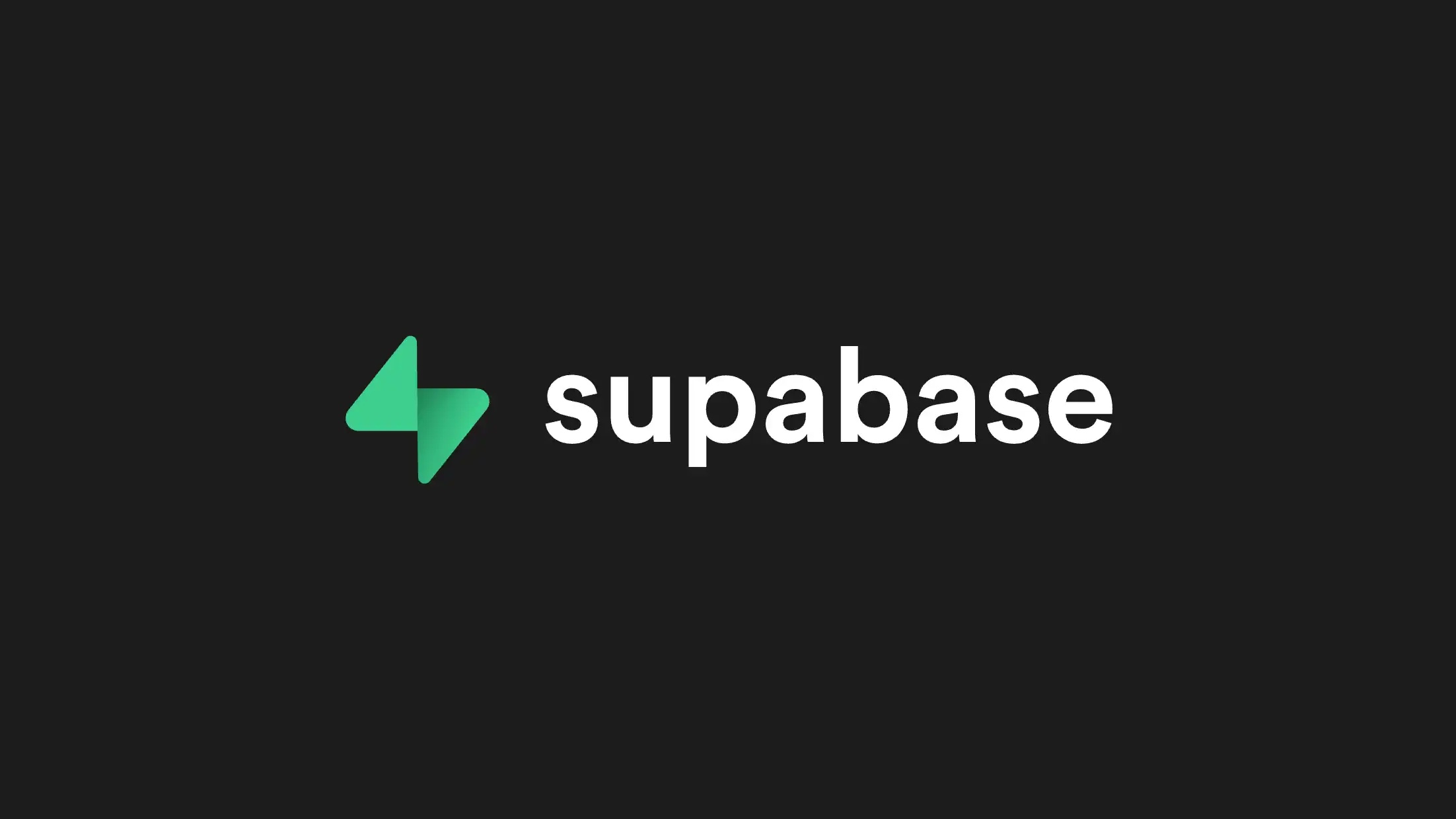
66. OpenShot
OpenShot is an open-source video editor for Windows, Mac, and Linux. It offers basic editing tools suitable for beginners and professionals alike. Contributors can work on new video editing features, improve stability, or add effects. Skills in Python and multimedia processing are beneficial. OpenShot is an excellent project for developers passionate about video editing and multimedia.
67. Mautic
Mautic is an open-source marketing automation platform, allows users to manage campaigns, track leads, and analyze marketing performance. Contributors can help develop new marketing tools, improve analytics, or enhance the user interface. Skills in PHP, JavaScript, and marketing are useful for contributors. Mautic offers hands-on experience with digital marketing technology and CRM systems.
68. phpMyAdmin
phpMyAdmin is a popular tool for managing MySQL databases through a web interface. It’s widely used by database administrators and developers alike. Contributors can work on improving database management features, enhancing security, or optimizing the user experience. Skills in PHP, MySQL, and web development are useful. phpMyAdmin is an ideal project for developers interested in database management and web applications.
69. Ghost
Ghost is a popular open-source publishing platform focused on blogging and content management. Contributors can work on new themes, add features for writers, or improve the editor. Skills in JavaScript, Node.js, and web development are useful for contributors. Ghost is a great choice for developers interested in publishing tools and content management systems.
70. Pipenv
Pipenv is a dependency manager for Python that simplifies virtual environment management. It’s widely used by Python developers to manage project dependencies. Contributors can help improve dependency resolution, enhance compatibility, or work on documentation. Skills in Python and dependency management are beneficial. Pipenv is ideal for developers looking to support the Python ecosystem.
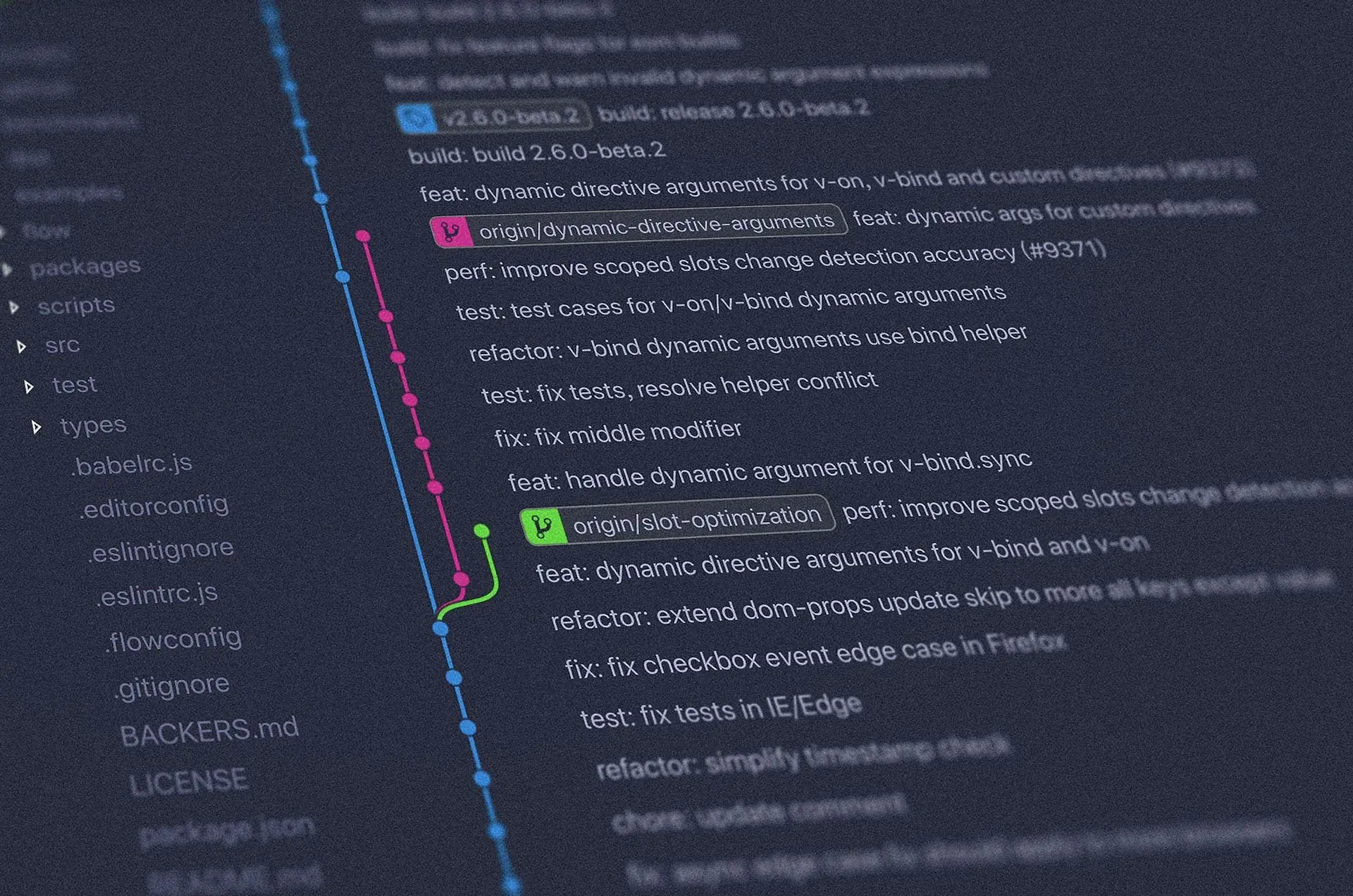
71. Metabase
Metabase is an open-source business intelligence tool that allows users to query and visualize data without code. It’s popular among data teams for creating reports and dashboards. Contributors can work on data visualization features, optimize database queries, or enhance the user experience. Skills in Java, JavaScript, and data analysis are useful for contributors. Metabase provides experience in data visualization and analytics, essential skills in data-driven industries.
72. Nginx
Nginx is an open-source web server and reverse proxy server used for handling high-performance traffic. It’s widely used in web hosting and by content delivery networks. Contributors can work on server optimizations, security features, or module development. Skills in C, networking, and server configuration are helpful for contributors. Nginx is a valuable project for developers interested in web servers and high-performance web architecture.
73. Mattermost Plugins
Mattermost supports plugins, which extend its functionality for specific use cases. Contributors can work on creating plugins for task management, notifications, or data integrations. Skills in JavaScript, React, and plugin development are useful. Contributing to Mattermost plugins is ideal for those interested in extending team communication platforms.
74. MLflow
MLflow is an open-source platform for managing the machine learning lifecycle, including experimentation, reproducibility, and deployment. Contributors can help improve tracking, add model deployment tools, or enhance integration. Skills in Python, machine learning, and data science are useful. MLflow is ideal for those interested in machine learning operations (MLOps).
75. GNU Octave
GNU Octave is a high-level programming language used for numerical computation, often considered an alternative to MATLAB. Contributors can work on algorithm improvements, add new math functions, or enhance compatibility with MATLAB. Skills in C++ and numerical analysis are helpful. Octave is a valuable project for developers interested in scientific computing.

Contributing to open-source projects is an enriching experience that offers developers more than just technical growth. Whether you’re interested in web development, machine learning, data science, or desktop applications, there is an open-source project that aligns with your interests and skill level. From robust platforms like TensorFlow and Kubernetes to community-focused tools like FreeCodeCamp and OpenStreetMap, each project provides a unique avenue for contributors to make a meaningful impact on a global scale.
Open source not only strengthens your coding abilities but also connects you to a community of like-minded individuals passionate about technology and problem-solving. Through collaboration, contributors learn best practices, build lasting networks, and improve their problem-solving skills. Open-source contributions also build a strong foundation of real-world experience, which is invaluable for career growth and portfolio building. As we move into 2024, the demand for open-source innovation continues to rise, and each contribution, no matter how small, helps advance these projects for millions of users.

